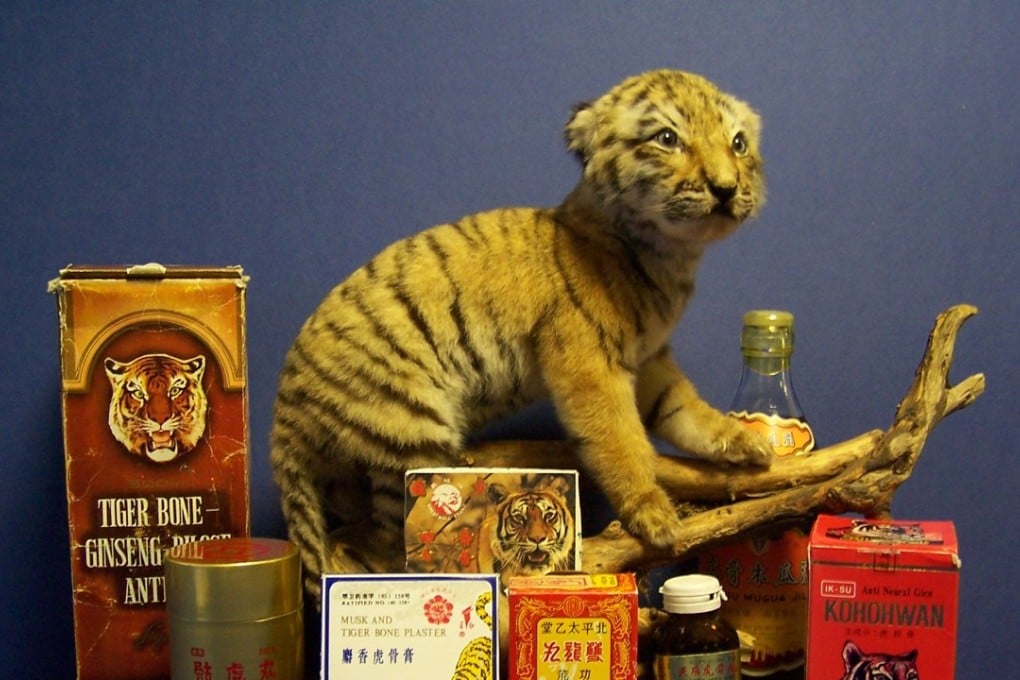Will China ending ban on tiger bone, rhino horn worsen humans’ decimation of wildlife?
- Country lags behind some others in wildlife conservation
- Overturning of ban comes after China’s recent tightening of laws meant to protect endangered animals

“Under special circumstances, trading or using of tiger bone, rhino horn or any products containing them should apply for permission,” China’s cabinet, the State Council, said.
Conservationists sounded the alarm at China’s decision, despite its restrictions on sourcing and use of the products.
“Rhino horn power for medical use can only be obtained from captive bred rhinos, and tiger bones from those of natural death,” the announcement said. Scientific researchers can request to use tiger or rhino products, it said, but only for the purpose specified. Antique tiger and rhino products are also permitted if they are given as gifts or are inherited assets.

Margaret Kinnaird, the Worldwide Fund for Nature (WWF) wildlife practice leader, said: “With wild tiger and rhino populations at such low levels and facing numerous threats, legalised trade in their parts is simply too great a gamble for China to take.”